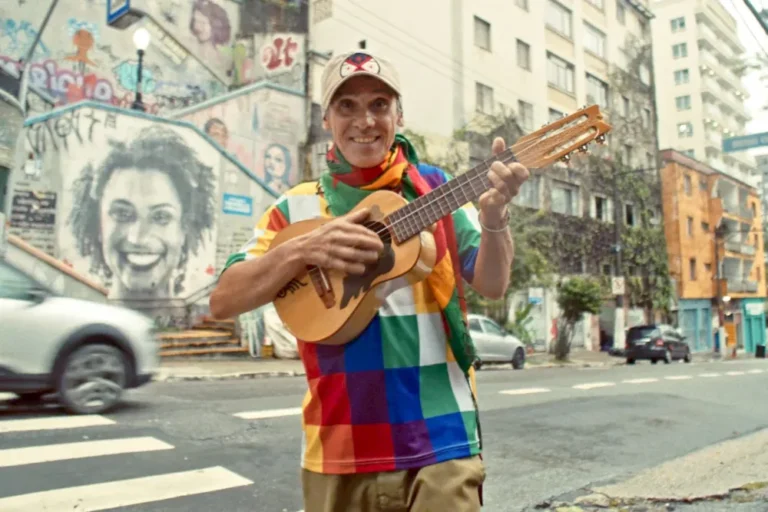For many years, Manu Chao has roamed the world, performing for fans in offbeat locations like small towns and independent festivals, hearing, sharing and creating new stories. These stories of everyday lives of ordinary people and their struggles are the stories that inspired the 13 tracks that make up “Viva Tu”. The album addresses the current state of the world as Manu perceives it, blending languages such as Spanish, French, English, and Portuguese, the album offers an optimistic yet critical reflection on global social issues.
The title track, which was first released in May as the first single of the album, is a heartfelt rumba, sung with a sorrowful kind of happiness that only Manu Chao could pull off. The track is a show of love towards the normal people that surround us everyday (“your upstairs neighbour, the street-sweeper, the baker”) these people that grace us with their everyday presence which sometimes we may take for granted. With this track, Manu makes us, not just take notice of them, but also love them. It’s a topic he’s never tackled before, but one which also owes nothing to chance. Prior to his international success, Manu was a courier himself. A courier in the city of Paris. São Paulo Motoboy will inevitably bring up the same motorcycle-riding workers found on the streets of Europe, Africa, Asia and the Americas. It will also feature an immersive documentary depicting the daily life of ‘motoboys’ in São Paulo.
The third single leading up to the album, “Tu Te Vas” is a delicate and sensitive ballad about two souls who choose to part ways. True to Manu Chao’s style, the pain and struggle of existence are set to music. In collaboration with Laeti, the rapper known from the series “Validé,” the song reflects on a past love to better face the future, without bitterness.
Manu Chao’s sound is often described as a unique fusion of genres, blending elements of ska, reggae, Latin music, and world music. The lo-fi raw aesthetic and unpolished feel that reflects street culture and grassroots movements is present here too as the new music that Manu presents to us in is not very different to what we were used to hear from him, and while in most cases this could be in detriment to the quality of the music, that is not the case when the music is as well written and performed as this is. Listening to “Viva Tu” feels like going back to a safe place that made us happy when we were kids.


